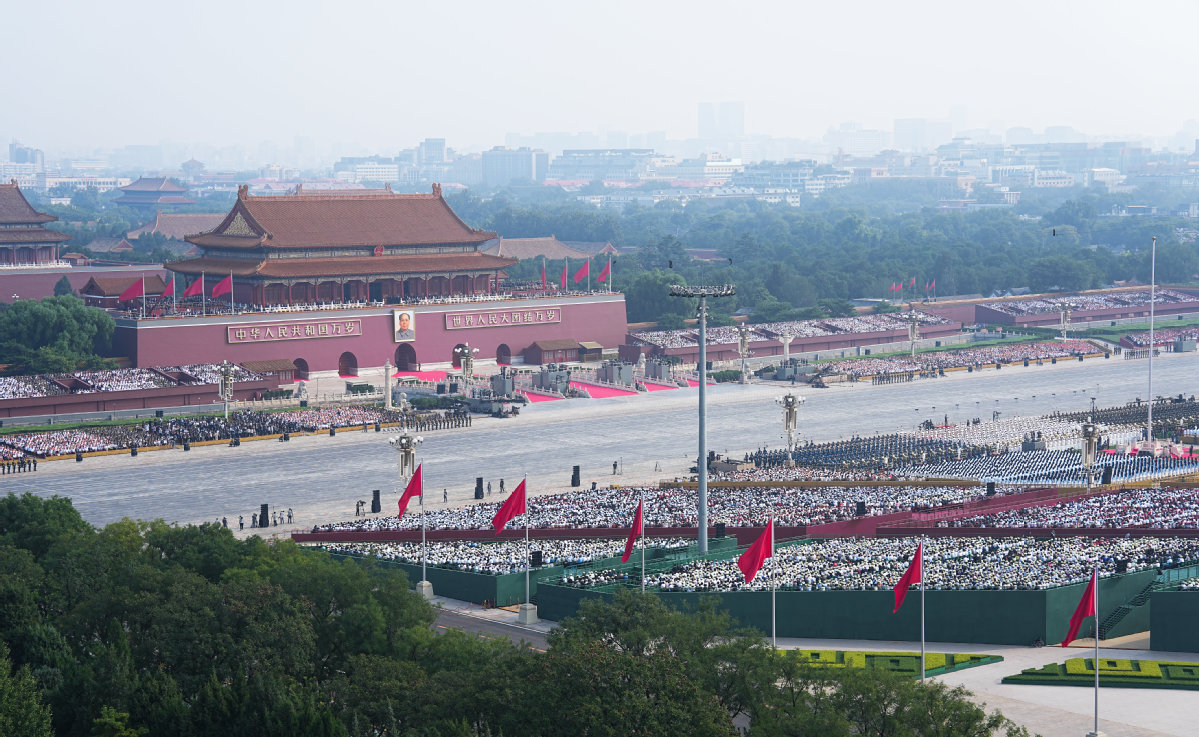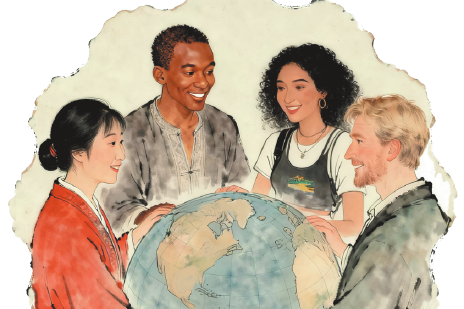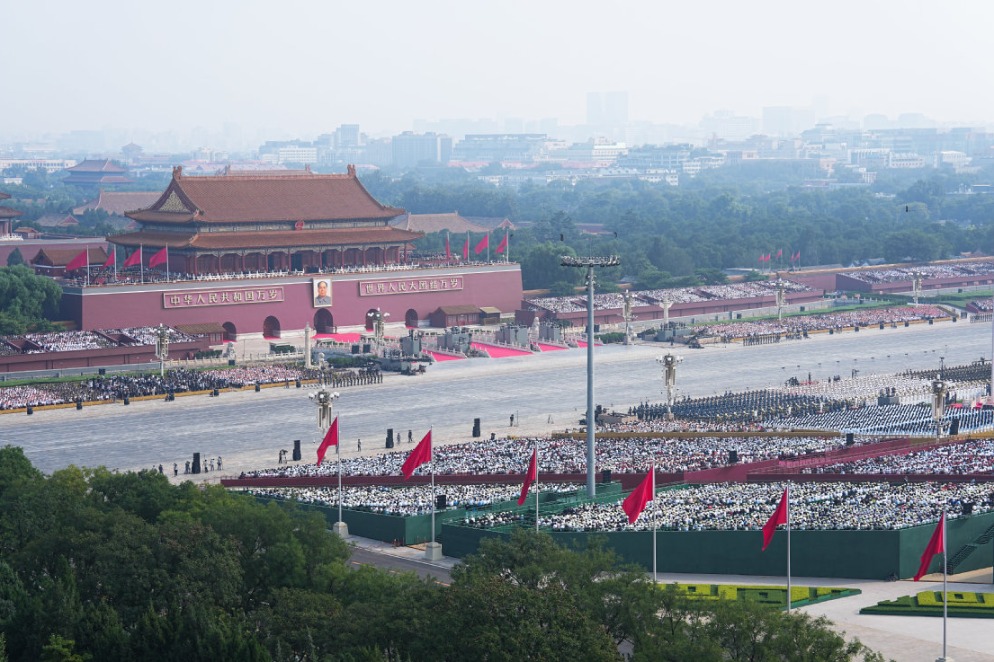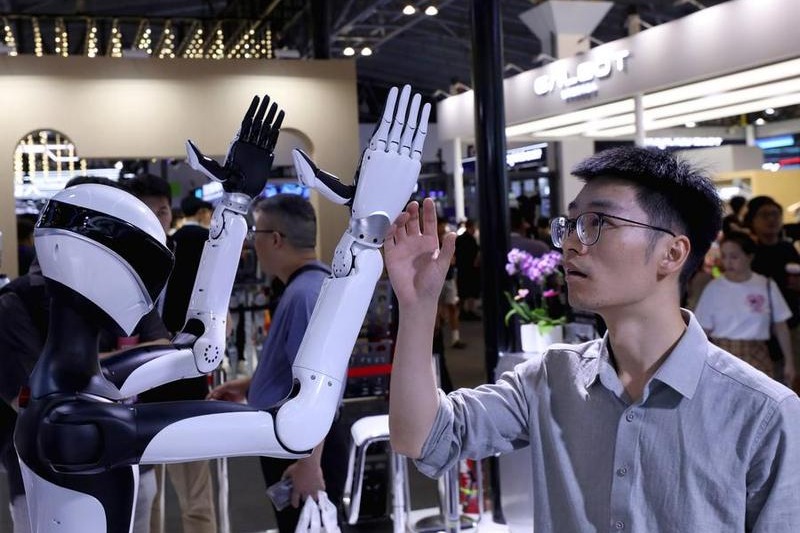Intl community should learn from World War II to create a better future


This year marks the 80th anniversary of the victory of the Chinese People's War of Resistance Against Japanese Aggression and the World Anti-Fascist War.
The commemorative activities held by China hold profound significance for both China and the world, as they reaffirm the enduring relevance of this historical legacy.
The Chinese People's War of Resistance Against Japanese Aggression was a crucial part of the World Anti-Fascist War, forming its major Eastern Theater. China was the first to take up arms against fascism, beginning with the September 18th Incident in 1931—a full eight years before the anti-fascist war broke out in Europe. More than 70 percent of Japan's ground forces were pinned down in the Chinese theater. It was precisely because its strength was constrained by China's resistance that Japan's ambition to "advance northward" and link up with Nazi German forces was thwarted, thereby aiding the Soviet Union in stabilizing the European front. Japan's "southward advance" was also delayed, buying precious time for the US and British allied forces in the Pacific.
Without China's tenacious resistance in the East, the course of the World Anti-Fascist War would have unfolded very differently. After 14 years of unyielding struggle, and at the cost of more than 35 million casualties, China made a monumental contribution to the ultimate victory of the World Anti-Fascist War.
Yet, influenced by Eurocentric perspectives, some Western scholars have often overlooked or underestimated the contributions of China's War of Resistance, while disproportionately emphasizing those of the US and Britain. This has led to a distorted understanding of World War II history within parts of the international community.
Although Japan was defeated 80 years ago, it has never truly repented for its history of aggression nor offered a sincere apology to the nations it victimized—unlike Germany.
Right-wing conservative politicians in Japan not only refuse to acknowledge and atone for wartime crimes, but also deliberately whitewash the history that inflicted immense suffering on its Asian neighbors. They openly worship the Yasukuni Shrine, which honors Class-A war criminals, and persistently pursue military expansion in an attempt to break away from their post-war restraints and become a so-called normal country.
We expect Japan to change course. What is essential, however, is that more people come to understand and remember this history, and remain vigilant against the revival of Japanese militarism.
One of the most significant decisions made by the international community following World War II was the establishment of the United Nations, which formed the cornerstone of the post-war international order. Yet, 80 years later, these hard-won achievements—and the international system the community built—are facing severe challenges from unilateralism and hegemonic actions.
Some country, in disregard of international legal instruments such as the UN Charter, the Cairo Declaration, and the Potsdam Proclamation, has arbitrarily withdrawn from treaties and international organizations. It selectively applies, sometimes even attempt to distort, fundamental principles of international law, and propagate absurd fallacies such as claiming that "the status of Taiwan remains undetermined." These actions severely undermine the authority and effectiveness of the international system.
Amid an increasingly complex and turbulent global landscape, the international community must resolutely uphold the authority of the United Nations, and defend the international system centered around the UN, the international order based on international law, and the basic norms of international relations grounded in the purposes and principles of the UN Charter.
It is imperative to build an equal and orderly multipolar world and advance universally beneficial and inclusive economic globalization, where all countries can participate equally, enjoy their rights, and play their roles. This will enable nations and peoples around the world to share in the gains of development brought about by economic globalization.
This is how we honor and pay tribute to history.
Eight decades have passed, yet we must never allow the memories to fade. The international community must draw wisdom and strength from the profound lessons of World War II, resolutely oppose all forms of hegemony and power politics, and jointly create a better future for humanity.
History remains both the best textbook and most sobering reminder.
Zhong Ken is an international scholar.
The views don't necessarily represent those of China Daily.
If you have a specific expertise, or would like to share your thought about our stories, then send us your writings at opinion@chinadaily.com.cn, and comment@chinadaily.com.cn.
































